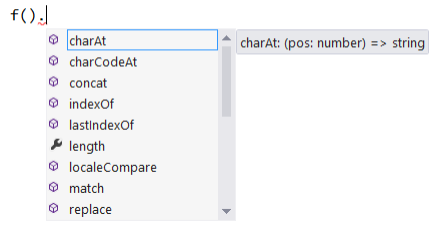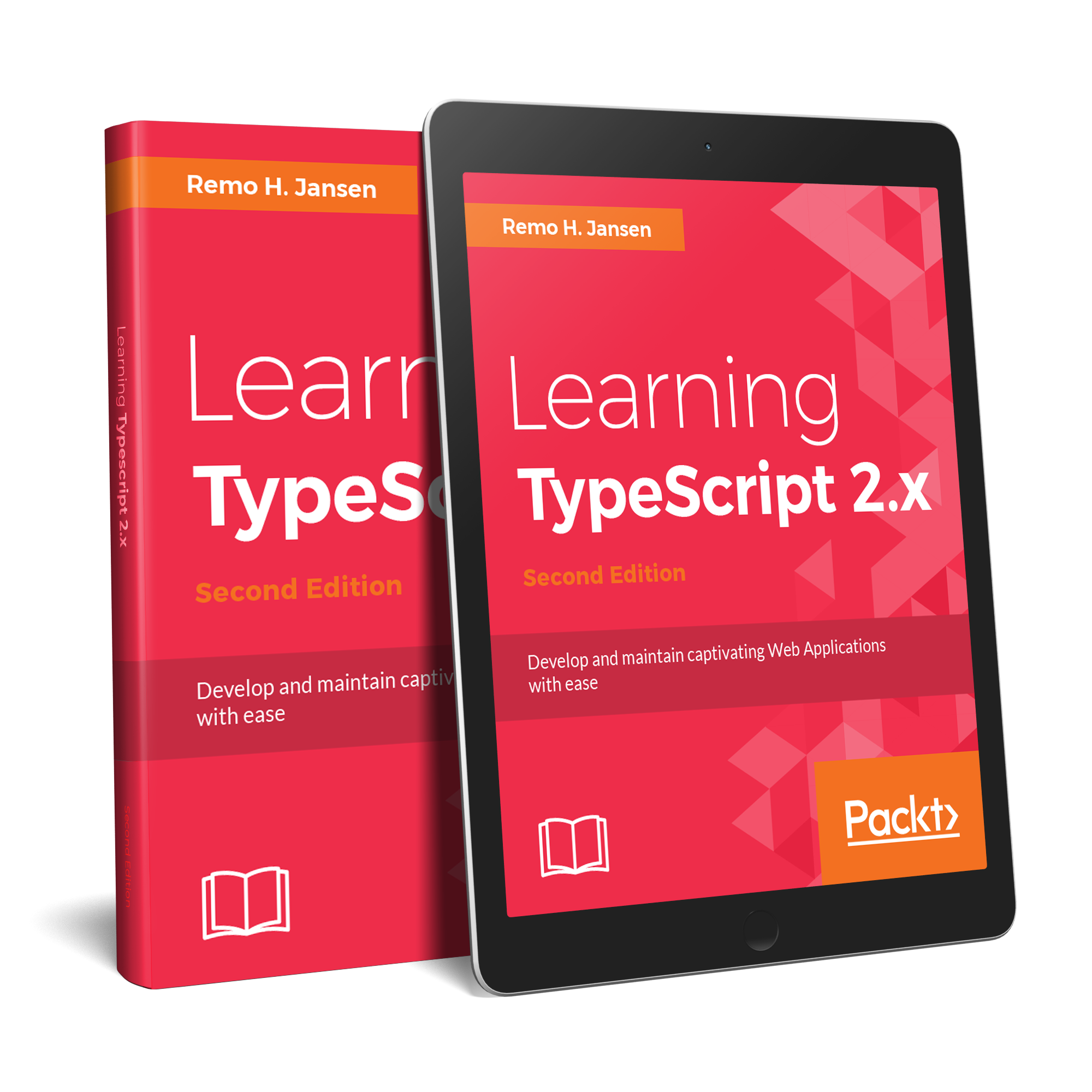
Introducing TypeScript
Large-scale JavaScript application development.
Remo H. Jansen
www.remojansen.com - @RemoHJansen - blog.wolksoftware.com
Complex !== Complicated
- Complicated implies being difficult to understand but with time and effort, ultimately knowable.
- Complex, describes the interactions between a number of entities. If the number of entities and interactions between them increase we will get to a point where it would be impossible to know and understand all of them.

“As a system evolves, its complexity increases unless steps are taken to reduce it.”
- "The eight laws of software evolution" by Meir Lehman
Chidamber & Kemerer
object-oriented metrics suite
1. Number of methods defined in class (WMC)
2. Depth of inheritance tree (DIT)
3. Number of immediate sub-classes of a class (NOC)
4. Number of classes to which a class is coupled (CBO)
Note: The Chidamber & Kemerer object-oriented metrics suite is one of
the most common ways of measuring complexity of a system but there are
many other principles and techniques which can be applied for this purpose.
The SOLID principles
Single responsibility principle
Open/Close principle
Liskov substitution principle
Interface segregation principle
Dependency inversion principle
Note: Adhering to the SOLID principles is one of the most common ways to reduce
the complexity of a system but there are many other principles and techniques which
can be applied for this purpose.
The principles, when applied together, intend to make it more likely that a programmer will create a system that is easy to maintain and extend over time
We can write SOLID OOP code with JavaScript (ES5) but it feels so unnatural .
ES6 and ES7 make writing SOLID OOP code more natural
but it will be years before we can use them without having to
worry about old browsers.
Note: Some JavaScript developers don't like when I say this but I think that doing things like using closures to emulate a private property is not what I would consider as natural OOP (using the "private" access modifier).
TypeScript is the future of JavaScript
TypeScript allow us to use ES6 and ES7 today!
We can use the --target compiler option
to specify ECMAScript target version: 'ES3' (default), 'ES5', or 'ES6'.
ES5 class
var Person = (function () {
function Person(name, surname) {
this.name = name;
this.surname = surname;
}
Person.prototype.greet = function () {
return "Hello! my name is " + this.name + " " + this.surname;
};
return Person;
})();
ES6 class
class Person {
public name;
public surname;
constructor(name, surname) {
this.name = name;
this.surname = surname;
}
public greet() {
return `Hello! my name is ${this.name} ${this.surname}`;
}
}
ES5 inheritance
var __extends = (this && this.__extends) || function (d, b) {
for (var p in b) if (b.hasOwnProperty(p)) d[p] = b[p];
function __() { this.constructor = d; }
__.prototype = b.prototype;
d.prototype = new __();
};
var Animal = (function () {
function Animal(theName) {
this.name = theName;
}
Animal.prototype.move = function (meters) { /* ... */ };
return Animal;
})();
var Snake = (function (_super) {
__extends(Snake, _super);
function Snake(name) {
_super.call(this, name);
}
Snake.prototype.move = function (meters) {
/* ... */
_super.prototype.move.call(this, meters);
};
return Snake;
})(Animal);
ES6 inheritance
class Animal {
name:string;
constructor(theName: string) { this.name = theName; }
move(meters: number = 0) { /* ... */ }
}
class Snake extends Animal {
constructor(name: string) { super(name); }
move(meters = 5) {
/* ... */
super.move(meters);
}
}
ES5 module (RequireJS)
require([
"./source/inversify.config",
"./source/models/filter_state_model"
], function (kernel, FilterStateModel) {
// code goes here ...
});
ES6 modules
import { kernel } from "./source/inversify.config";
import { FilterStateModel } from "./source/inversify.config";
// code goes here ...
We can use the --module compiler option
to specify module code generation: 'commonjs', 'amd', 'system', or 'umd'.
Callbacks (ES5)
Parse.User.logIn("user", "pass", {
success: function(user) {
query.find({
success: function(results) {
results[0].save({ key: value }, {
success: function(result) {
// the object was saved.
}
});
}
});
}
});
Promises (ES6)
Parse.User.logIn("user", "pass").then(function(user) {
return query.find();
}).then(function(results) {
return results[0].save({ key: value });
}).then(function(result) {
// the object was saved.
});
Promise.all([Primise1, Primise2, PrimiseN]).then(function() {
console.log("all the files were created");
});
Async Functions (ES7)
async function updateEntity() {
var success = false;
var user = await Parse.User.logIn(user, pass);
if(user !== null) {
let results = await query.find();
success = await results[0].save({ key: value };
}
return success;
}
await updateEntity();
if(success) {
// the object was saved.
}
Decorators (ES6)
@Component({
selector: 'todo-app',
appInjector: [
AngularFire,
bind(Firebase).toValue(new Firebase('https://webapi.firebaseio-demo.com/test'))
]})
@View({
templateUrl: 'todo.html',
directives: [NgFor]
})
class TodoApp {
todoService: FirebaseArray;
todoEdit: any;
todoFilter: Boolean;
constructor(sync: AngularFire) {
this.todoService = sync.asArray();
this.todoEdit = null;
this.todoFilter = null;
}
editTodo($event, todo) {
this.todoEdit = todo;
}
}
TypeScript goes beyond
ES6 & ES7
TypeScript is not a dynamic programming language
and introduces some great features that are not available
in ES6 or ES7!
Type inference
function f() {
return "hello";
}
Code editors can incorporate the TypeScript language service.

Optional type annotations
function f(s: string) { return s; }
// It is also possible to define the type of a function using the optional type annotations
var f : (s: string) => string;
f = function(s: string) { return s; }
Interfaces
interface ISerializable { serialize() : string; }
interface IMainSkill { use() : bool; }
interface IPerson {
name : string;
surname : string;
greet() : string;
}
class MockMainSkill implements IMainSkill {
use() { return true; }
}
describe("Person Class", () => { // TDD & BDD
it("should be able to greet", () => {
var mainSkill = new MockMainSkill(); // SOLID: Liskov substitution principle
var luke : IPerson = new Person("Luke", "Skywalker", mainSkill);
expect(luke.name).to.equal("Luke");
expect(luke.surname).to.equal("Skywalker");
expect(luke.greet()).to.equal("Hello! my name is Luke Skywalker");
});
}
class Person implements IPerson, ISerializable { // SOLID: Interface segregation principle
private _skill : IMainSkill; // SOLID: Dependency inversion principle
public name : string;
public surname : string;
constructor(name: string, surname: string, skill : IMainSkill) { /* ... */ }
greet() : string { /* ... */ };
serialize() : string { /* ... */ };
}
Generics Types
interface IValidatable {
validate() : void;
}
class CustomCollection<T extends IValidatable> { // SOLID: Open/Close principle
private itemArray: Array<T>;
constructor() {
this.itemArray = [];
}
Add(item: T) {
this.validate();
this.itemArray.push(item);
}
// ...
}
class User implements IValidatable{
public name;
validate() { if(name === null) throw new Error(); }
}
class Message implements IValidatable{
public message;
validate() { if(message === null) throw new Error(); }
}
var myMessage = new CustomCollection<Message>();
var myUsers = new CustomCollection<User>();
myUsers.Add(new User());
myUsers.Add(new Message()); // Error because of generic type validation
Good news! TypeScript is a superset of JavaScript
All your JavaScript code is already valid TypeScript code.
Want to learn more?

